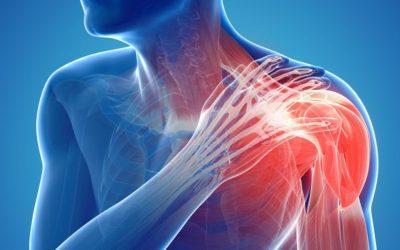-
Table of Contents
Stay hydrated, stay healthy.
Hydration plays a crucial role in maintaining overall health.
The Importance of Hydration for Physical Performance
Proper hydration is essential for maintaining overall health and well-being. While many people understand the importance of drinking enough water, they may not fully grasp the impact that hydration has on physical performance. Staying properly hydrated is crucial for athletes and individuals engaging in physical activities, as it directly affects their performance and recovery.
When it comes to physical performance, hydration plays a vital role in several key areas. Firstly, water is essential for regulating body temperature. During exercise, the body generates heat, and sweating is the primary mechanism for cooling down. Sweating helps to dissipate heat and prevent overheating. However, excessive sweating can lead to dehydration, which impairs the body’s ability to regulate temperature effectively. This can result in decreased performance and an increased risk of heat-related illnesses.
In addition to regulating body temperature, hydration is crucial for maintaining proper muscle function. Muscles are made up of approximately 75% water, and dehydration can lead to muscle cramps, fatigue, and reduced strength. When muscles are not adequately hydrated, they are more prone to injury and take longer to recover. Proper hydration ensures that muscles receive the necessary nutrients and oxygen, allowing them to perform optimally.
Furthermore, staying hydrated is essential for cardiovascular health. Dehydration can lead to a decrease in blood volume, which makes the heart work harder to pump blood throughout the body. This increased strain on the cardiovascular system can result in decreased endurance and performance. By maintaining proper hydration, individuals can support their cardiovascular health and improve their overall physical performance.
Hydration also plays a crucial role in maintaining cognitive function. Dehydration can lead to fatigue, dizziness, and difficulty concentrating, all of which can negatively impact physical performance. Proper hydration ensures that the brain receives adequate blood flow and oxygen, allowing for optimal cognitive function. This is particularly important for athletes who need to make split-second decisions and maintain focus during intense physical activities.
To ensure proper hydration for physical performance, it is essential to drink enough water before, during, and after exercise. The American College of Sports Medicine recommends drinking 16-20 ounces of water two to three hours before exercise and an additional 8-10 ounces 10-20 minutes before starting. During exercise, it is recommended to drink 7-10 ounces of water every 10-20 minutes, depending on the intensity and duration of the activity. After exercise, it is crucial to replenish fluids by drinking at least 16-24 ounces of water for every pound lost during exercise.
While water is the best choice for hydration, sports drinks can be beneficial for individuals engaging in prolonged, intense exercise lasting longer than 60 minutes. Sports drinks contain electrolytes, such as sodium and potassium, which help to replace the minerals lost through sweat. These electrolytes aid in maintaining proper fluid balance and can enhance performance during prolonged physical activities.
In conclusion, proper hydration is essential for physical performance. Staying adequately hydrated helps regulate body temperature, maintain muscle function, support cardiovascular health, and enhance cognitive function. By following recommended guidelines for fluid intake before, during, and after exercise, individuals can optimize their physical performance and overall health. Remember, water is the best choice for hydration, but sports drinks can be beneficial for prolonged, intense exercise. Stay hydrated and perform at your best!
Hydration and its Impact on Cognitive Function
Hydration is a crucial aspect of overall health, and its impact extends beyond just physical well-being. In fact, research has shown that proper hydration plays a significant role in cognitive function. This article will delve into the importance of hydration for brain health and explore how staying hydrated can enhance cognitive abilities.
To understand the connection between hydration and cognitive function, it is essential to grasp the composition of the brain. The brain is composed of approximately 75% water, making it highly susceptible to dehydration. When the body lacks adequate water, the brain’s cells do not receive the necessary hydration, leading to impaired cognitive function.
Dehydration can manifest in various ways, including difficulty concentrating, memory problems, and decreased alertness. These symptoms can significantly impact daily life, affecting productivity, decision-making, and overall mental performance. Therefore, maintaining proper hydration levels is crucial for optimal cognitive function.
One way hydration affects cognitive abilities is through its impact on brain structure. Studies have shown that dehydration can lead to a reduction in brain volume, particularly in regions responsible for memory and attention. This shrinkage can result in cognitive decline and an increased risk of neurodegenerative diseases such as Alzheimer’s.
Furthermore, hydration plays a vital role in neurotransmitter production and function. Neurotransmitters are chemical messengers that facilitate communication between brain cells. Without sufficient water, the production and release of neurotransmitters can be disrupted, leading to imbalances that affect cognitive processes such as learning, memory, and mood regulation.
In addition to its direct effects on brain structure and neurotransmitter function, hydration also influences cerebral blood flow. Proper hydration ensures adequate blood flow to the brain, delivering essential nutrients and oxygen. Insufficient hydration can lead to reduced blood volume and compromised blood flow, impairing cognitive function.
Research has consistently demonstrated the impact of hydration on cognitive performance. A study conducted on young adults found that even mild dehydration, equivalent to a 1-2% loss of body weight, resulted in decreased attention, slower reaction times, and increased feelings of fatigue. These findings highlight the importance of maintaining proper hydration levels throughout the day.
So, how can one ensure optimal hydration for enhanced cognitive function? The first step is to drink enough water. The Institute of Medicine recommends a daily water intake of about 3.7 liters for men and 2.7 liters for women. However, individual needs may vary based on factors such as activity level, climate, and overall health. It is essential to listen to your body’s signals and drink water whenever you feel thirsty.
Additionally, consuming foods with high water content can contribute to hydration. Fruits and vegetables, such as watermelon, cucumbers, and oranges, are excellent choices to supplement your water intake. Avoiding excessive caffeine and alcohol consumption is also crucial, as these substances can dehydrate the body.
In conclusion, hydration plays a vital role in overall health, including cognitive function. Proper hydration ensures optimal brain structure, neurotransmitter function, and cerebral blood flow. Dehydration can lead to cognitive decline, memory problems, and decreased alertness. To enhance cognitive abilities, it is essential to maintain adequate hydration levels by drinking enough water and consuming water-rich foods. By prioritizing hydration, individuals can optimize their cognitive performance and overall well-being.
Hydration and its Role in Digestive Health
Water is essential for our overall health, and it plays a crucial role in maintaining proper digestive health. Hydration is often overlooked when it comes to digestive issues, but it can have a significant impact on our digestive system’s functioning. In this section, we will explore the role of hydration in digestive health and why it is essential to stay properly hydrated.
One of the primary functions of water in the digestive system is to aid in the digestion and absorption of nutrients. When we eat food, our body breaks it down into smaller molecules that can be absorbed and used by our cells. Water helps in this process by dissolving these molecules and facilitating their movement through the digestive tract. Without adequate hydration, digestion can become sluggish, leading to issues such as constipation and bloating.
Furthermore, water helps to soften the stool, making it easier to pass. When we are dehydrated, the colon absorbs more water from the stool, resulting in hard and dry stools that are difficult to eliminate. This can lead to constipation, which can be uncomfortable and even painful. By staying hydrated, we can ensure that our stools remain soft and easy to pass, promoting regular bowel movements.
In addition to aiding digestion and preventing constipation, hydration also plays a role in preventing gastrointestinal disorders. Dehydration can increase the risk of developing conditions such as gastric ulcers and acid reflux. When the body is dehydrated, it produces less saliva and stomach acid, which are essential for breaking down food and killing harmful bacteria. This can lead to an imbalance in the gut microbiome and increase the risk of developing gastrointestinal issues.
Moreover, staying hydrated can help alleviate symptoms of certain digestive disorders. For example, individuals with irritable bowel syndrome (IBS) often experience bloating and abdominal pain. Drinking enough water can help to reduce these symptoms by promoting regular bowel movements and preventing constipation. Similarly, individuals with acid reflux may find relief by staying hydrated, as water can help dilute stomach acid and reduce the severity of symptoms.
It is important to note that while water is the best choice for hydration, other fluids such as herbal teas and clear broths can also contribute to overall hydration. However, it is best to avoid sugary drinks and excessive caffeine, as they can have a diuretic effect and increase the risk of dehydration.
In conclusion, hydration plays a vital role in maintaining proper digestive health. Water aids in digestion, prevents constipation, and helps prevent gastrointestinal disorders. It can also alleviate symptoms of certain digestive disorders such as IBS and acid reflux. Staying properly hydrated is essential for overall health, and it is recommended to drink an adequate amount of water throughout the day. Remember, prevention is always better than cure, so make sure to prioritize hydration to keep your digestive system functioning optimally.In conclusion, hydration plays a crucial role in overall health. It is essential for maintaining proper bodily functions, regulating body temperature, supporting digestion, promoting healthy skin, and aiding in the transportation of nutrients. Staying adequately hydrated is important for optimal physical and mental performance, as well as preventing dehydration-related health issues. Therefore, it is important to prioritize hydration and ensure sufficient water intake throughout the day to support overall well-being.



